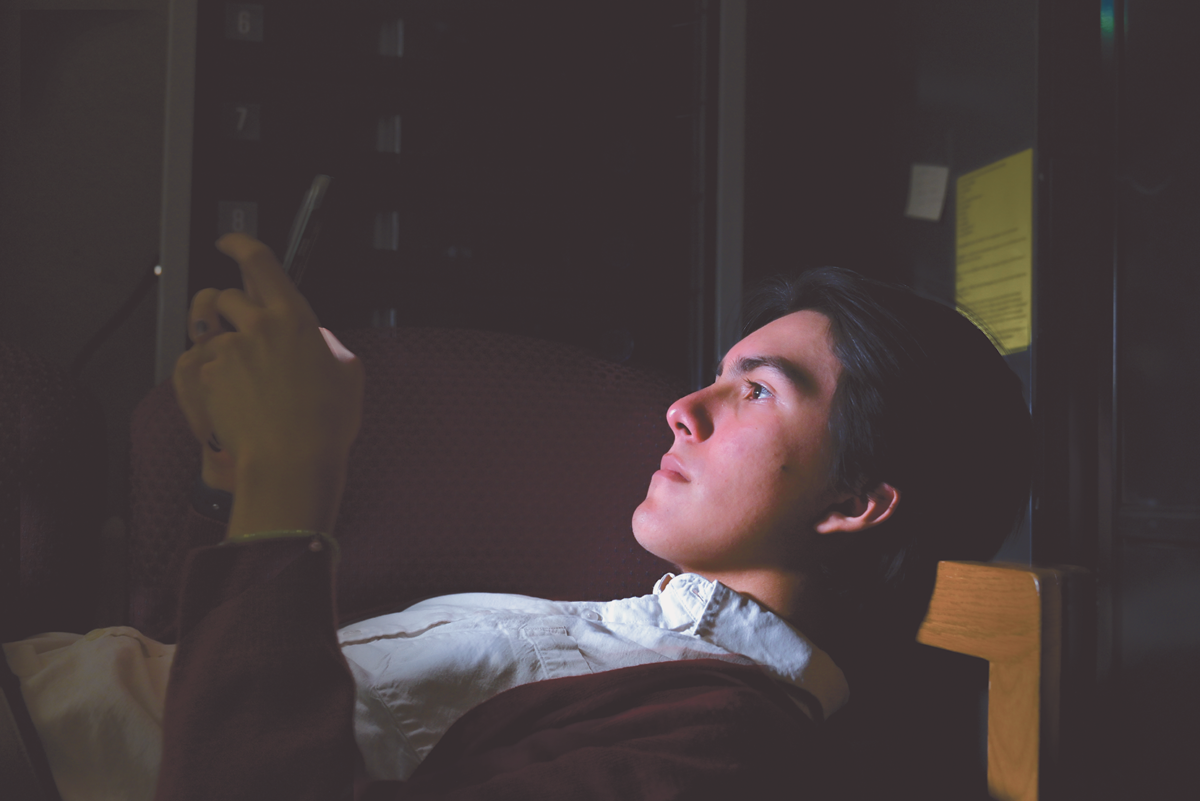The abridged version of this article appeared in the June 2023 print edition of The Mirror. This is an uncut version.
Peering at her phone, she sighed upon seeing the time. It was a little after 1 a.m.
Her AP Environmental Science homework was sprawled out in front of her, completed after a laborious two hours.
Next, her gaze landed on her AP Art History textbook. Despite feeling the weight of her exhaustion, she still had assignments left to tackle.
For senior Mikayla Lorenzo, this late-night homework grind — instead of the restful sleep she should be getting — has become an all-too-familiar routine. She manages just three to four hours of sleep on school nights, significantly less than the recommended eight or more hours.
In a recent school poll, an alarming 85 percent of the 62 participating students confessed to getting less than eight hours of sleep per night.
The U.S. Department of Health and Human Services (HHS) emphasizes the health benefits of adequate sleep, which include a better mood, clearer thinking and improved performance in school or work. In contrast, insufficient sleep can lead to the opposite effects.
Despite being aware of these risks, students find it challenging to get enough sleep due to their hectic daily schedules. Lorenzo, for instance, tried to implement a sleep schedule, but the overwhelming nature of her responsibilities has made it ineffective.
Lack of sleep affects Lorenzo’s test performance, leaving her feeling unsatisfied. She frequently thinks back on how improved recall of her studied materials could have boosted her scores.
Additionally, sleep deprivation has led to the development of unhealthy habits. Instances of Lorenzo dozing off in class or using her teacher-granted free time to rest her eyes have become all too frequent.
Despite her disappointment over the consequences of not getting enough sleep, Lorenzo feels helpless to change her situation. She dives into her homework as early as possible and heads straight to bed once she’s done.
“I start homework, maybe around 5:30 p.m. to 6:00 p.m.,” she explained. “After I finish homework, I take a quick shower and hop into bed.”
The Child Mind Institute recognizes the vast amount of school assignments as the third leading cause of student sleep deprivation. While more familiar culprits like biology and the use of technology often overshadow this issue, Lorenzo wishes it garnered more discussion.
“I know it’s inevitable if a student is taking hard classes, but schools should at least spread awareness on a subject and its workload,” she said.
With school and homework dominating their schedules, many students find little time for hobbies and interests. However, a few, like senior Kaden Wright, manage to engage in their creative pursuits after completing schoolwork.
“I work on either screenplays, editing videos or producing songs,” Wright said. “School and homework takes up a lot of my time during the day.”
In order to wrap up his work as quickly as possible, Wright makes it a point to stay focused and avoid distractions.
“I don’t get distracted with my phone while doing work,” he said. “I scroll on Instagram for maybe an hour before sleeping but other than that I don’t use social media much at all.”
While excessive screen time and social media are commonly blamed for sleep deprivation among students, Lorenzo believes this is often overemphasized. Instead, she reserves her gaming time for weekends to keep her focus on academic tasks.
“I don’t really play games before bed or on a school day,” she said. “I typically wait for the weekend to binge-play.”
Inadequate sleep can increase the risk of mental health issues, something Lorenzo has noticed during the school year.
“I feel more sad than usual,” she said. “I also relate to those that get anxious about not getting enough sleep, which makes it even harder for me to sleep.”
The struggle to balance sleep and school is a constant throughout students’ academic years. While there’s no universal solution, a few strategies like efficiently spacing out assignments and seeking help when homework becomes difficult could potentially increase sleep hours.
Improving sleep hygiene could also involve avoiding phone screens at least 30 minutes before bedtime.
“The biggest influence on our sleep hygiene is light, and one of the best ways to limit exposure to it is putting your phone away at least 30 minutes before going to bed,” Psychiatric Social Worker Ms. Kat Stockly explained. “When you’re looking at light, your body will be alert even though it’s time to sleep.”
In order to maximize their sleep, students may need to reconsider the time allocated to school responsibilities and personal interests.
“If you feel like you need more rest then listen to your body,” Ms. Stockly said. “If you have a lot of homework, then at least take a few moments to relax your body. But I definitely recommend prioritizing sleep.”




